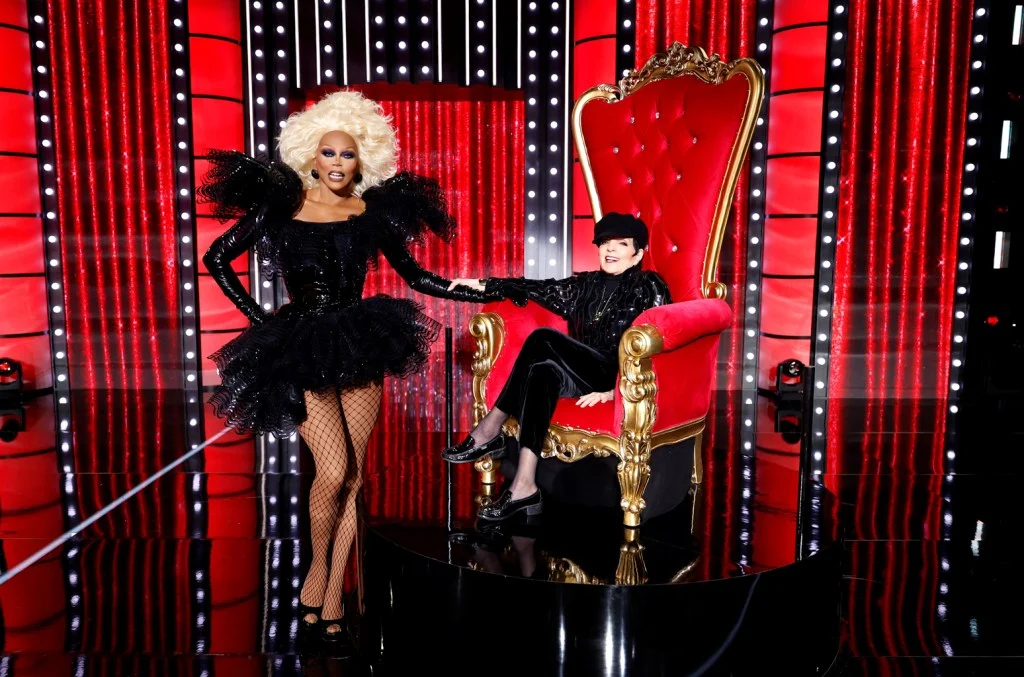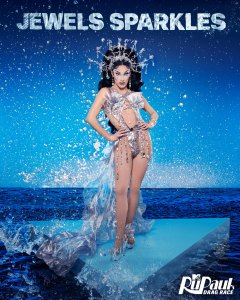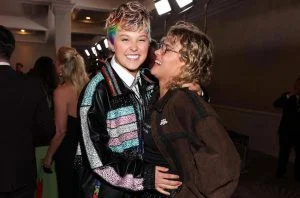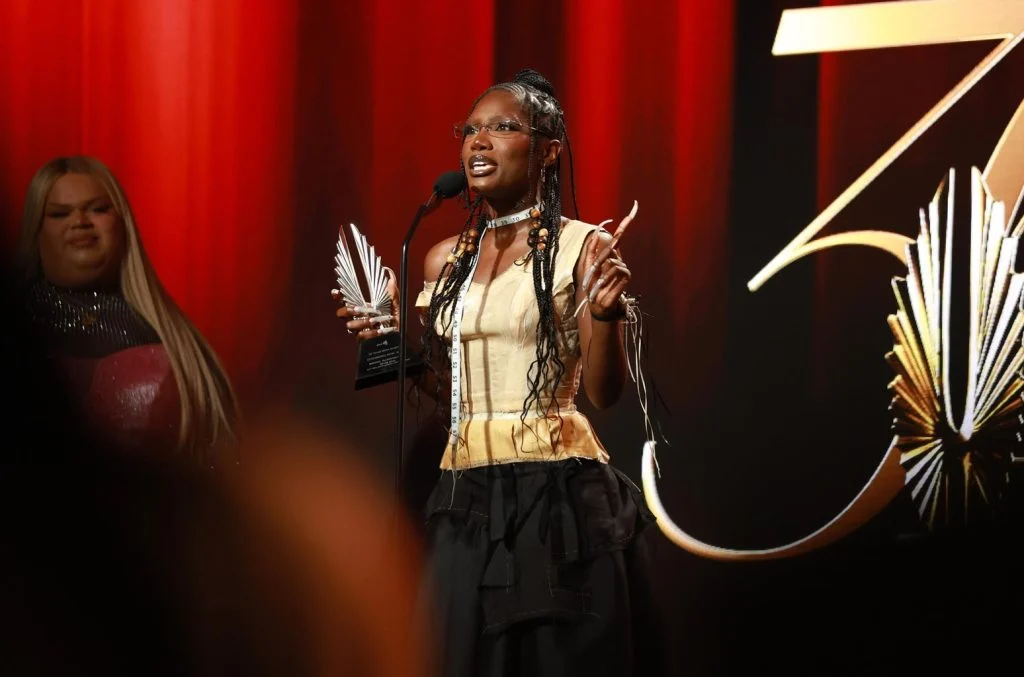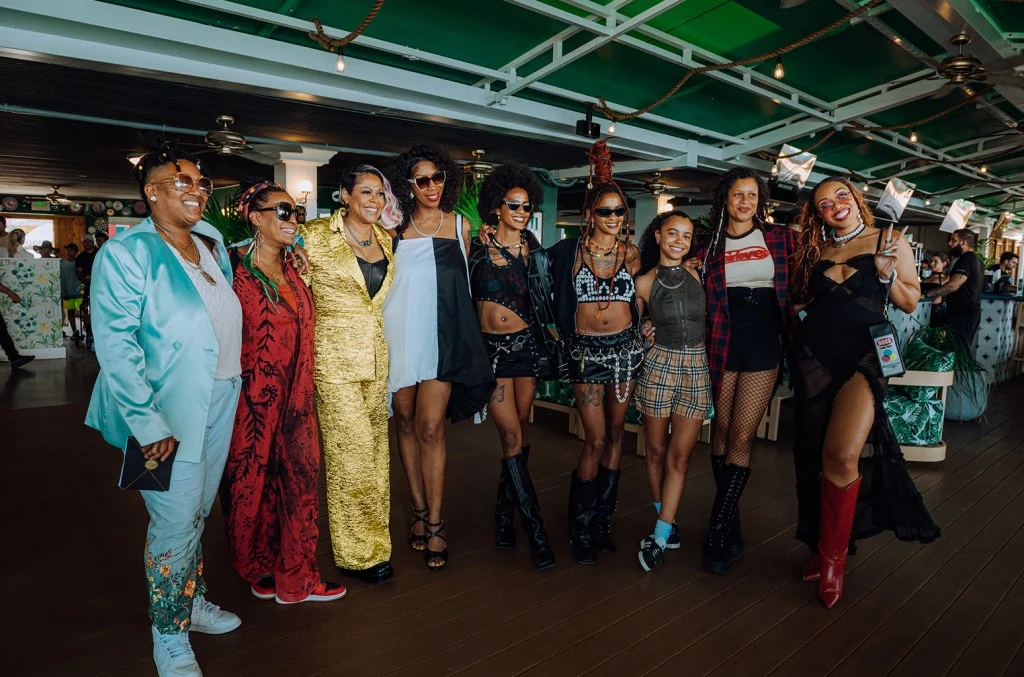Pride
Page: 9
Over the years, Lil Nas X has dealt with his fair share of criticism over his creative choices, and the star is reflecting on how things would be even worse in today’s political climate. Explore Explore See latest videos, charts and news See latest videos, charts and news The Grammy-winning singer appears on the most recent […]
For 17 seasons, RuPaul’s Drag Race has served as a launch pad for new pop icons. Now, the show is honoring its inspirations by recognizing EGOT winner Liza Minnelli as a cultural icon who paved the way for entertainers like RuPaul. On Tuesday (April 1), Drag Race announced that RuPaul will present Minnelli with the […]
With RuPaul’s Drag Race bringing back their Rate-a-Queen system for season 17, Billboard decided to rate each of the new queens every week based on their performance. Below, we take a look at the emotional makeover challenge to see which queens became proud drag parents to their proud real parents. Spoilers ahead for episode 13. […]

With Monday (March 31) marking the annual International Transgender Day of Visibility, pop superstar Madonna took a moment to celebrate the community with a post to her social media. Sharing a series of photos from a fundraising fashion show she attended over the weekend to her Instagram account — including a photo with trans model […]
03/31/2025
For International Transgender Day of Visibility, Billboard asked trans and nonbinary stars about how they’re moving two steps forward while political progress takes one step back.
03/31/2025
Richard Chamberlain, who died on Saturday (March 29) night at age 90, will be remembered as a TV icon, but he was a hot recording artist for a time. His debut album, Richard Chamberlain Sings, released on MGM Records, made the top five on the Billboard 200 in 1963.
In addition, he had three top 30 hits on the Billboard Hot 100: “Theme From Dr. Kildare (Three Stars Will Shine Tonight” (No. 10 in 1962), a cover version of the Elvis Presley smash “Love Me Tender” (No. 21 in 1962) and a cover version of the Everly Brothers smash “All I Have to Do Is Dream” (No. 14 in 1963).
He was also the first artist to record “They Long to Be Close to You,” a Burt Bacharach/Hal David song that went on to become a pop standard when it was recorded by the Carpenters. The duo’s version was Billboard’s Song of the Summer for 1970 and received a Grammy nod for record of the year. Chamberlain’s version, conducted by Bacharach, went relatively unnoticed. It was featured on the B side of his Hot 100 single “Blue Guitar” (No. 42 in 1963).
Trending on Billboard
Chamberlain died in Waimanalo, Hawaii, of complications from a stroke, according to his publicist, Harlan Boll.
Chamberlain received a Grammy nomination in 1972, but not for his music. He was nominated for best spoken word album for an RCA Recordings recording of a production in which he played Hamlet.
While Chamberlain’s recording career was short-lived, his status as a TV star spanned decades. He starred in Dr. Kildare from 1961-66. The medical drama ranked in the top 10 in the Nielsen ratings in its first season and remained in the top 20 for its second and third seasons.
In 1975, he received his first Primetime Emmy nomination for starring in The Count of Monte Cristo. He was nominated for outstanding lead actor in a special program (drama or comedy).
In the early 1980s, Chamberlain gained a reputation as the king of the miniseries for his starring roles in Shogun, The Thorn Birds and Wallenberg: A Hero’s Story. He received Primetime Emmy nods for outstanding lead actor in a limited series or a special for all three productions.
Chamberlain also acted in film and on Broadway. His first attempt at Broadway — in a legendarily troubled 1966 production of a musical adaptation of the 1961 film Breakfast at Tiffany’s with Mary Tyler Moore — ended when producer David Merrick pulled the plug on the musical after only four preview performances in New York. (Happily, both stars survived the high-profile flop.)
Chamberlain went on to star on Broadway in revivals of The Night of the Iguana (1976-77), Blithe Spirit (1987), My Fair Lady (1993-94) and The Sound of Music (1999).
Born George Richard Chamberlain in Los Angeles on March 31, 1934, Chamberlain was named after his grandfather but was always called Dick or Richard. Chamberlain was gay, which was known in the industry but kept from the public in the years he was a romantic leading man. He came out in 2003, at age 68, in his memoir Shattered Love: A Memoir.
Chamberlain’s fears of rejection by his fans proved unfounded. “Everyone has been so supportive, so positive,” he told The Los Angeles Times in an interview to promote the book. “In New York, people walked up to me in the street, and in theaters. Strangers gave me the thumbs up, wished me well, said, ‘Good for you.’ I’m just awestruck by the change in the way I feel about life now.”
In a time where the LGBTQ+ community seems to be under near-constant attack from the current presidential administration, GLAAD decided to celebrate queer and trans creatives in style on Thursday night (March 27) for the 2025 GLAAD Media Awards. The event, which was held at the Beverly Hilton Hotel in Los Angeles, honored stars from […]
In need of some new tunes from your favorite queer artists? We’ve got you covered. Billboard Pride is proud to present the latest edition of Queer Jams of the Week, our roundup of some of the best new music releases from LGBTQ+ artists.
Explore
Explore
See latest videos, charts and news
See latest videos, charts and news
From Lucy Dacus‘ romantic new album to Maren Morris reassuring anthem, check out just a few of our favorite releases from this week below:
Lucy Dacus, Forever Is a Feeling
Lucy Dacus is ready to feel the love, as she shows on her luxurious, exapnsive new album Forever Is a Feeling. Across 13 tracks, Dacus explores the feeling of finding “the one” (album standout “Bullseye” with Hozier), helps her partner see themselves the way she does (“Big Deal”) and dedicates a gorgeous love song to her girlfriend Julien Baker (“Most Wanted Man”). With each song taking on a bigger sound for the singer-songwriter, her love of detailed songwriting remains. As she recently told Billboard: “Love is noticing.”
Trending on Billboard
Maren Morris, “Carry Me Through”
Things might be looking bleak for queer and trans rights around the world right now, which means a song like Maren Morris’ “Carry Me Through” is exactly the energy a lot of us need. Throughout this soulful, stunning new ballad (off the singer’s forthcoming new album Dreamsicle), Morris calls out our circumstances for what they are before “preaching to a choir of one” that the best ally you can find in dark times is yourself. After all, as she belts on the lush chorus, “I’m still the one who has to choose to carry me through.”
Perfume Genius, Glory
Perfume Genius has never been one for simplicity. Glory, the indie star’s bold new LP, takes a bird’s eye view of the themes Mike Hadreas has explore throughout his entire career and broadens them out to the biggest, most maximal versions of themselves. Shuffle beats and poetic lyrics punctuate Hadreas’ evolving style, as he contends with existential questions about pain, bodies, trauma, anxiety and the willingness to persevere on one of his best albums to date.
Kali Uchis, “Sunshine & Rain…”
With the good comes the bad, and Kali Uchis is ready to take both in stride on her latest track. “Sunshine & Rain…” follows the singer as she examines her own life and the context surrounding it, acknowledging that she can accept some hardship if it means that she’ll grow from it, while wondering why the world doesn’t seem to feel the same way. “Whatever happened to the human race? Did everyone’s brains get melted and deranged?” she wonders on the song. “When was it that your lost your common sense? The world needs an epiphany.”
Chloe Moriondo, Oyster
There have always been two Chloe Moriondos, each alike in their unique talent to bring A+ pop music to the forefront. Now, with Oyster, the indie pop star has taken those two sides — the sweet-but-sadistic and the glitch-pop partier — and fused them into one, unified persona. On her best work yet, Moriondo brings her killer songwriting in contact with precise — yet still experimental — production to make a fascinating album that you won’t want to stop listening to. The album is a lot like its titular mollusk; once you crack it open, you might just find a gleaming pearl inside.
Allison Ponthier, “Karaoke Queen”
Every artist fears what could happen to them after getting dropped by a major label. So when it happened to Allison Ponthier earlier this year, she was left with a question: What do I do now? The answer arrives with “Karaoke Queen,” a tender, fragile new ballad that sees Ponthier contending with her new position, realizing that there are always silver linings. Showcasing her ethereal voice and unmatched skills at confessional lyricism, Ponthier takes what was a worst case scenario and turns it into a golden example of why she is more than capable of moving on from this.
Check out all of our picks on Billboard’s Queer Jams of the Week playlist below:
After winning her first Grammy and being named Billboard‘s Woman of the Year for 2025, Doechii is adding another piece of awards hardware to her shelf after Thursday night (March 27).
Doechii took home the GLAAD Media Award for outstanding music artist at the non-profit organization’s ceremony. Presented the award by former GLAAD Award recipients Lil Nas X and Maren Morris, Doechii took to the stage to express her delight.
“I am thrilled at being recognized with such a prestigious award by GLAAD and to be joining prior honorees such as Renee [Rapp], Lady Gaga, Lil Nas X, Sam Smith and Janelle Monáe,” she said. “This is a huge and special moment as well because GLAAD is celebrating its 40th anniversary this year, which is super fab.”
As she continued, laying out the organization’s principles of “acceptance, inclusiveness and empowerment,” Doechii took a moment to reflect on where we are in this politically charged moment for the LGBTQ+ community.
“Those are the same things I strongly believe in and advocate for and that continue to propel me forward — especially now that hard-won cultural change and rights for transgender people and the LGBTQ community have been threatened,” she said. “And I am disgusted. Disgusted. But I want to say that we are here and we are not going anywhere.”
In closing her speech, Doechii gave a special callout to up-and-coming queer artists in the audience, offering them some sage advice: “[Do] not let anyone ever block your dreams … I just want to encourage you guys to stay connected with one another. Stay passionate. Stay focused. Keep your chin up. Be kind, and be fab!”
Doechii was far from the only winner at Thursday’s ceremony. Rising R&B star Durand Burnarr took home a trophy for outstanding breakthrough music artist during the ceremony, while Cynthia Erivo was honored with the organization’s Stephen F. Kolzak award for her work in raising visibility for queer people in 2024 and beyond.
“I know this event is to celebrate the work and I am endlessly grateful for that honor and for this celebration, but the real work is making the ground we leave in our wake level enough for the next person who finds their way to the path we have made,” the Wicked actress said in her speech. “For the person who is searching and searching and has not found it yet. This room is full of people who can and will … be lanterns to light up your journey and your path on your way to showing the world who you are.”
The inaugural Femmy Awards kicked off in high style and spirit Thursday (March 27) in Miami.
Happening amid the many (many) events of Miami Music Week, the awards were put on by Femme House, the nonprofit founded by LP Giobbi and Lauren Spalding that works to create and celebrate equity in the music industry by amplifying voices of women, femme, gender-expansive LGBTQIA+ and BIPOC creators.
The afternoon ceremony took place on the waterfront patio at Palm Tree Club, the hotel opened by Kygo and his manager and Myles Shear this past December. In the sunshine and bay breezes, LP and Spaulding presented a variety of awards honoring artists, party brands, festivals, execs and other members across the dance music industry.
The event started with moving speeches by Barbara Tucker and Crystal Waters, who were honored with the Voice of House award for the prolific contributions they’ve made to the genre over the years. So too were DJ Minx and DJ Lady D each honored with the Pioneer Award for their everything they’ve each done to break barriers, reshape the dance and electronic music industries and pave the way for femme, non-binary, and LGBTQ+ artists.
The event also presented awards to a flurry of other artists, with Kaleena Zanders and Aluna Francis winning for best live performance, Coco & Breezy winning the Carolyn Horn Trailblazer Award (named for LP Giobbi’s longtime piano teacher who passed away in 2023), TSHA winning for best producer, Xandra being honored with the Rising Star Award and Sara Landry getting the award for producer of the year.
Trending on Billboard
The ceremony also honored a number of executives, with WME’s head of electronic music Stefanie LaFera getting the Theresa Velasquez Award for Outstanding Executive award and WME’s Bailey Greenwood winning for agent of the year. Billboard was the official media sponsor of the event.
See the complete winners list below.
2025 Ally Award: Le Chev2025 Breakthrough Artist: Alleycvt2025 Most Diverse Festival: Lightning in a Bottle2025 Theresa Velasquez Award for Outstanding Executive: Stephanie LaFera2025 Ableton Instructor of the Year: Mini Bear2025 Pass the Mic Media Award: DJ Mag2025 Pass the Mic Media Award: Billboard2025 Carolyn Horn Trailblazer Award: Coco & Breezy2025 Femme House Community Member of the Year: Shak Jackson2025 Best Live Performance: Kaleena Zanders + Aluna Francis @ Planet Pride
2025 Best Radio Mix: DJ Holographic2025 Album of the Year: Sofi Tukker, Bread2025 Best Sound Designer: Tokimonsta2025 Best Producer: TSHA2025 Best Vocalist: Kaleena Zanders2025 Best Engineer: Jayda Love2025 Best Mixer: Laura Sisk2025 Sonic Innovator Award: FKA Twigs2025 Best Visual Experience: The Blessed Madonna2025 Best Visual Experience: Nora En Pure2025 Activist & Impact Award: She Is the Music2025 Culture Shifter Award: Ronny Ho2025 Best Music Journalist: Katie Bain2025 Best Record Label: HE.SHE.THEY.2025 Manager of the Year: Julia Fugazy2025 Agent of the Year: Bailey Greenwood2025 Hospitality Visionary Award: Carly Van Sickle2025 Talent Booker: Heather Church2025 Best Club: Elsewhere2025 Icon Award: Honey Dijon2025 Song of the Year: Desiree, “Khuluma Nami”2025 Creative Director of the Year: Sophie Muller2025 Best Underground Promoter: Girls Room2025 For the Culture Award: Interna$hional Bounce2025 Voice of House Honoree: Barbara Tucker2025 Voice of House Honoree: Crystal Waters2025 Rising Star Honoree: Xandra2025 Producer of the Year Honoree: Sara Landry2025 Pioneer Award Honoree: DJ Lady D2025 Pioneer Award Honoree: Minx

 State Champ Radio
State Champ Radio 
